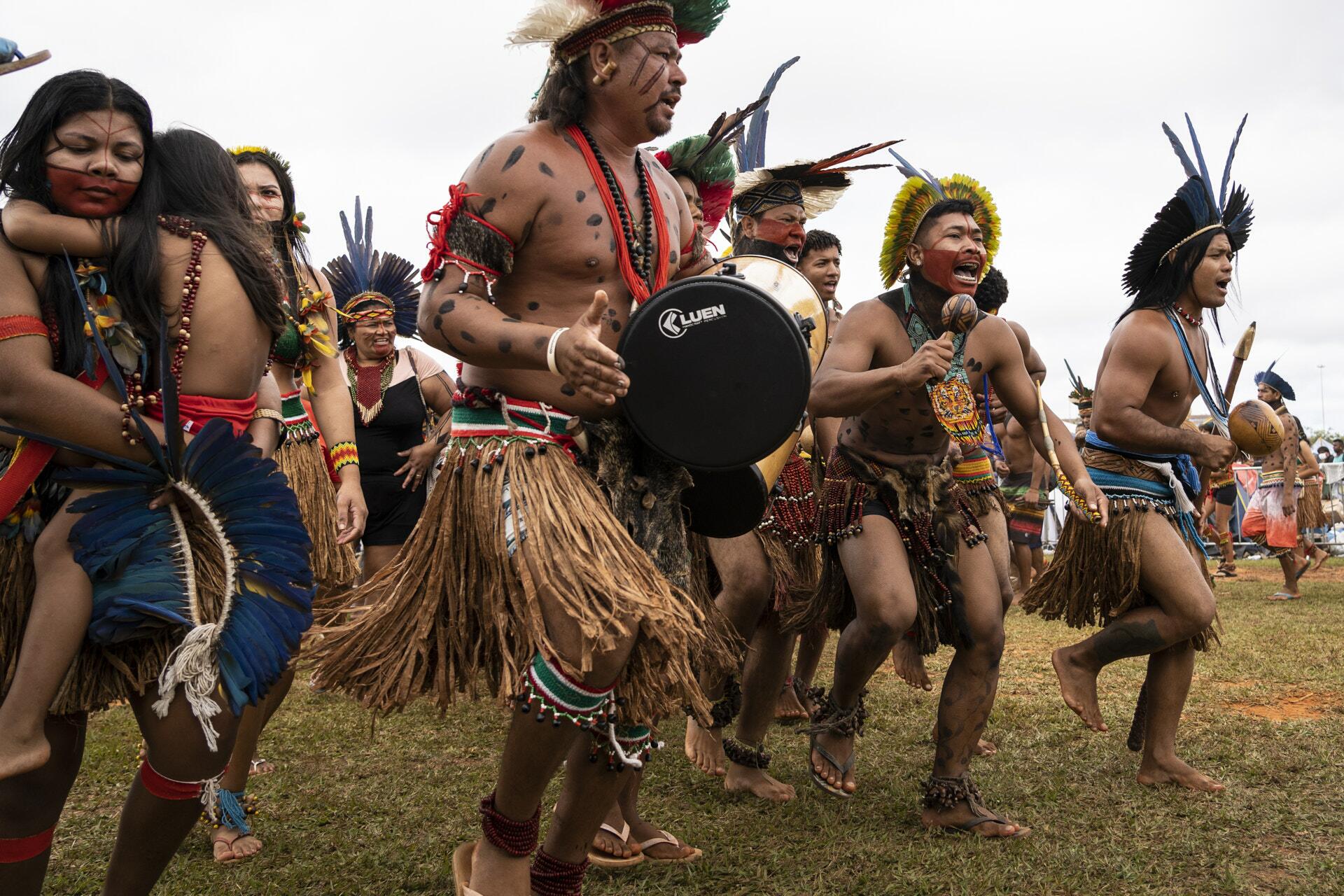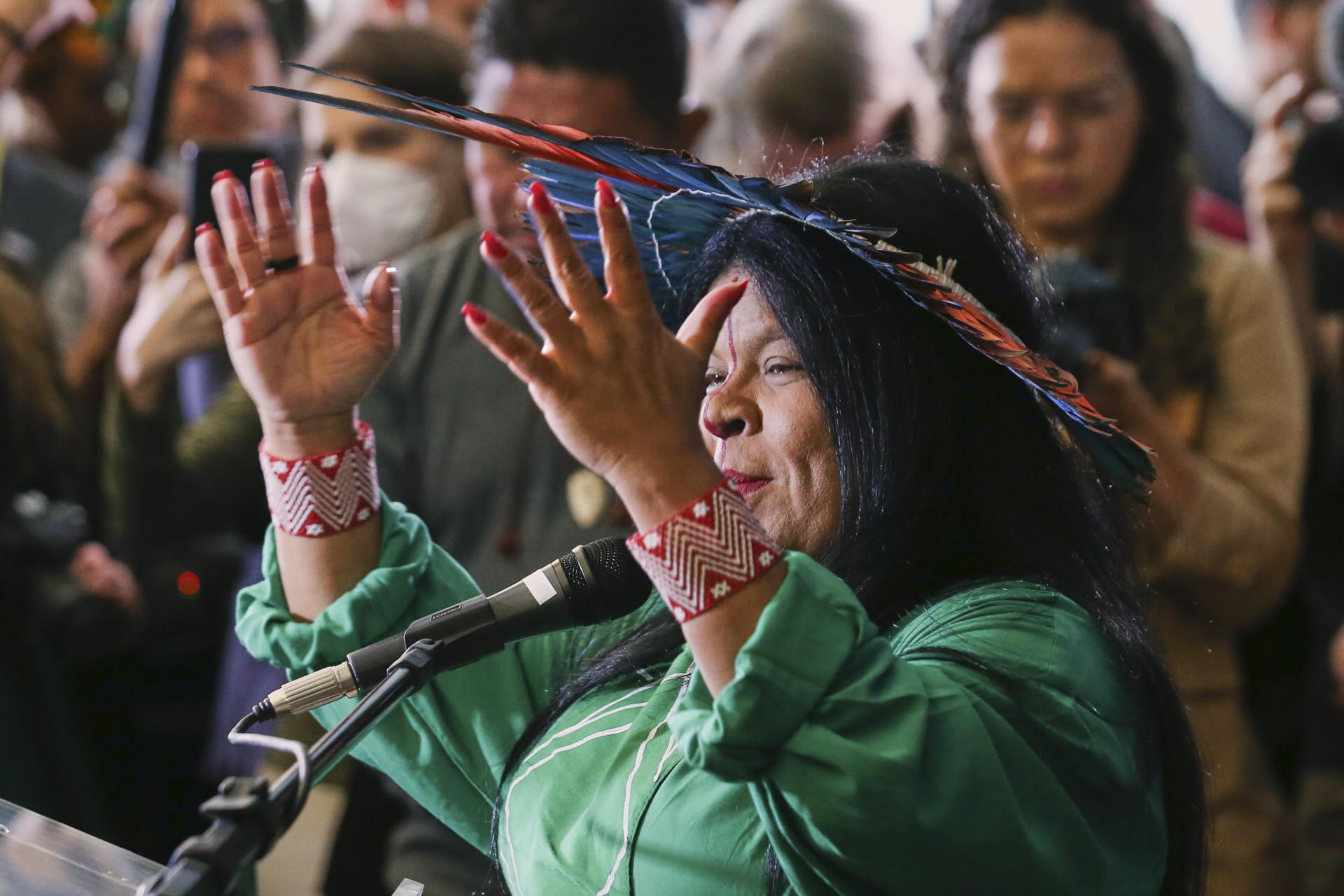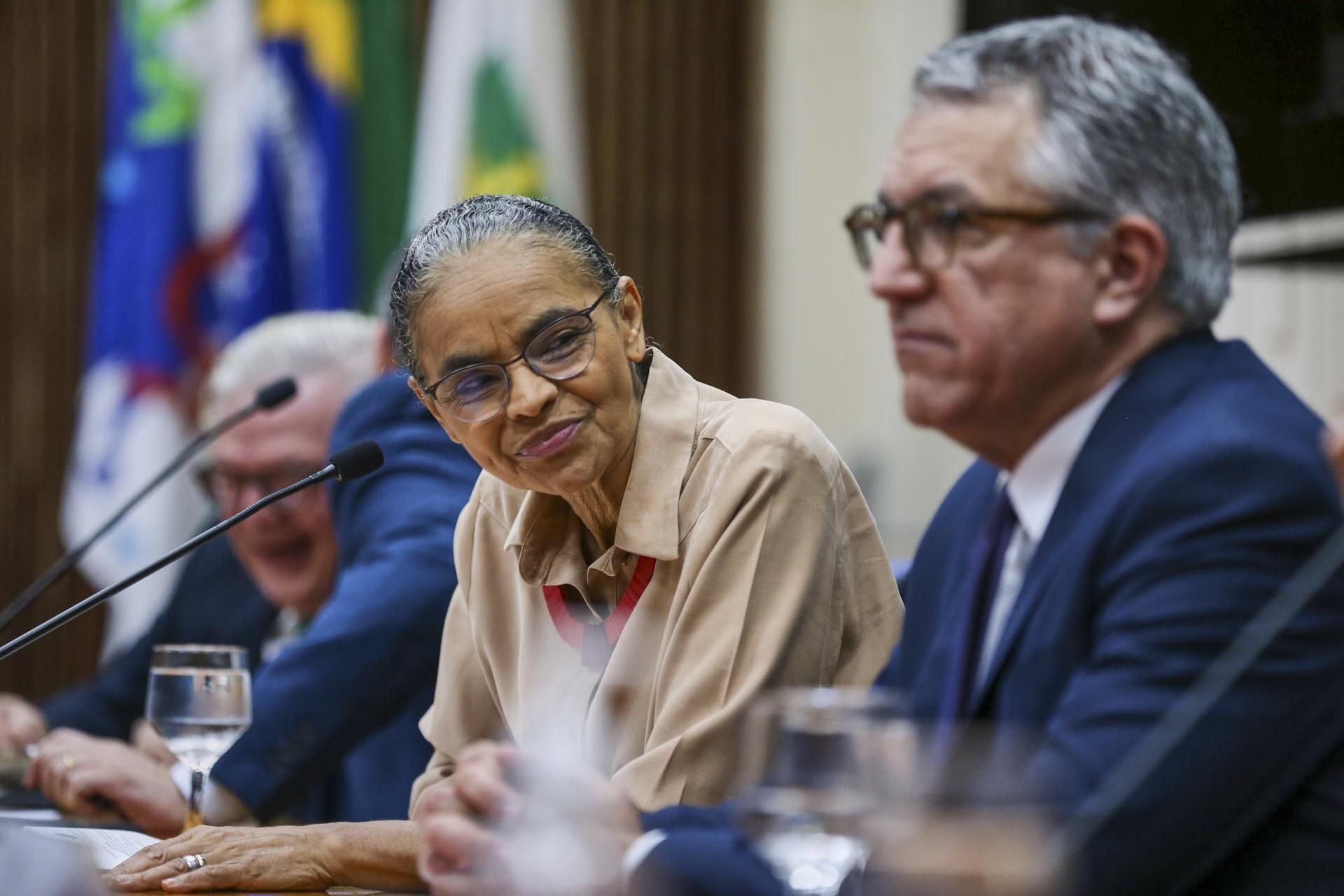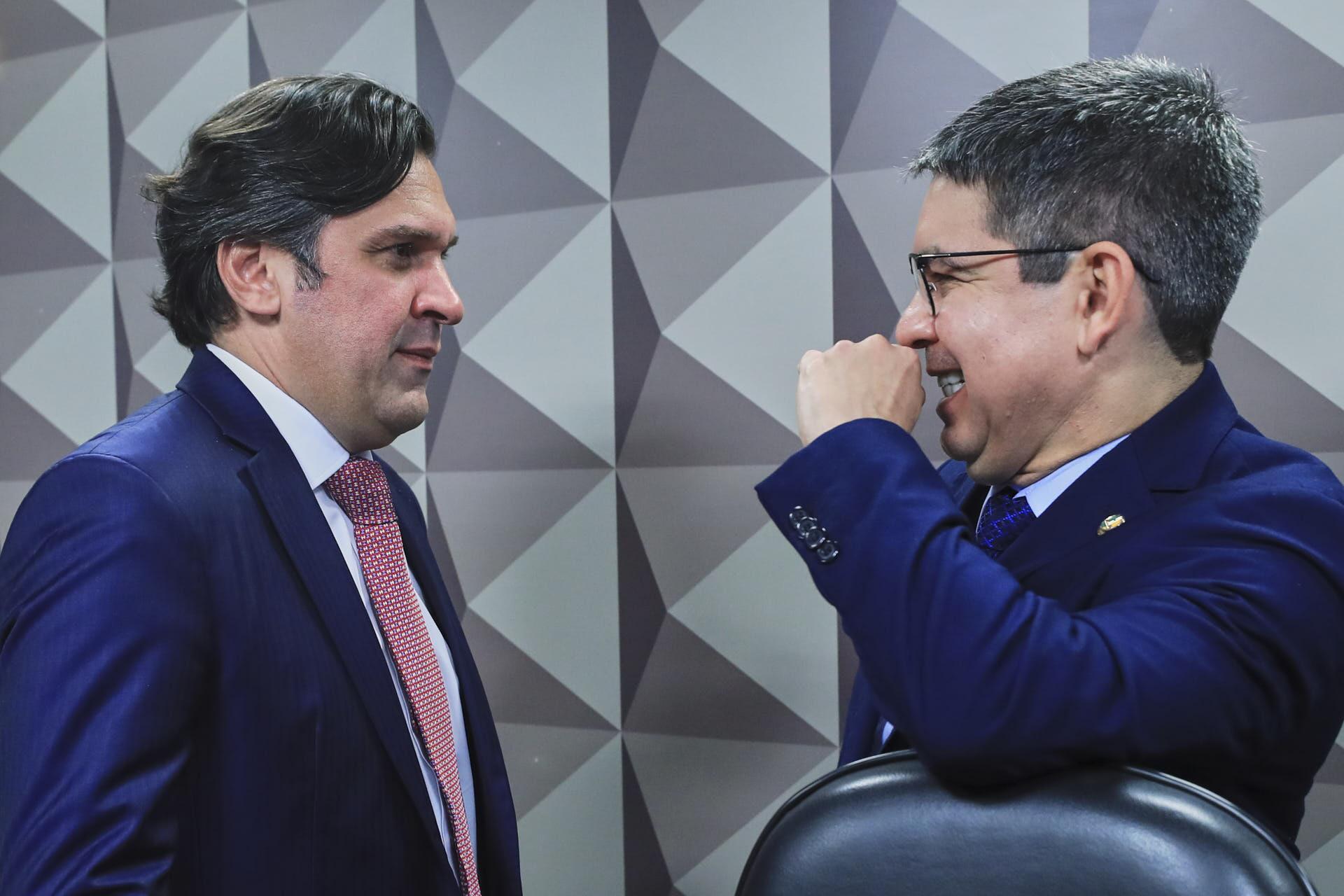Only a few days after the close of the Free Land Camp in Brasilia—the largest annual event for Brazil’s original peoples—Indigenous Peoples Minister Sonia Guajajara got a phone call from Rui Costa, the President’s Chief of Staff. Costa is something of a government manager for Luiz Inácio Lula da Silva (Workers’ Party), now in his third term of office. It was a tough talk. Sonia heard from her colleague that she was going to lose the prerogative to decide on the demarcation of new Indigenous territories. This had been a demand of the so-called ruralist bloc, the strongest, best financed, and most well organized in Congress. The ultimatum was delivered to Costa by Isnaldo Bulhões, federal deputy from Alagoas (Brazilian Democratic Movement) and rapporteur of Provisional Measure 1.154. The latter legal instrument, signed on January 1, 2023, defines the organizational and ministerial structure of the Lula administration. But the ruralist bloc wants to keep everything just as it was under Jair Bolsonaro’s far-right government. And never has this group wielded as much strength in Congress as it does now.
Until 2022, the justice ministry was responsible for issuing a document called a declaratory administrative ruling, the key step in the demarcation of an Indigenous territory. At his inauguration ceremony on January 1, Lula fulfilled a campaign promise by creating the Ministry of Indigenous Peoples. The president also transferred responsibility for this type of administrative ruling to the new ministry. This decision was one of several that effectively restructured the federal government inherited from Jair Bolsonaro, who had eroded the entire environmental framework.
The structural changes to the new administration were laid out in Provisional Measure 1.154 (MP 1.154). Provisional measures are decisions by the president of the Republic that come into force immediately after being signed. But unless Congress ratifies a provisional measure within six months, it lapses. MP 1.154 is valid until June 1.
The Congress that emerged from the October 2022 elections is the most reactionary in Brazil’s recent history. The Liberal Party (PL), of which Jair Bolsonaro is a member, won 99 of the 513 lower house seats, while former ministers of his far-right government, such as Damares Alves (PL-DF), Jorge Seif (PL-SC), and Sergio Moro (Brazil Union-PR), along with former vice president Hamilton Mourão (Republicans-RS), earned eight-year terms as senators. “The Brazil of 2023 is not the same as of 2022,” house speaker Arthur Lira warned a few weeks back, amid criticism that the government is falling short in the field of political negotiations. In a scarcely veiled message to Lula, Lira made it clear that the current Congress is not only an ideological adversary but also wants to retain the power to define where the bulk of the federal government’s expenditures should go.

Indigenous protest the voting, in Congress, of Bill 490, which limits the demarcation of Indigenous lands to those occupied on the date Brazil enacted its Constitution of 1988. Photo: Matheus Alves/Sumaúma
Lira, now the main leader of the so-called Centrão—a loose coalition of self-interested conservative politicians within Congress’s right-wing majority—also woke Lula up to reality, reminding the Workers’ Party president that he no longer enjoys the overwhelming popularity that he did at the close of his second term. In December 2010, Lula ended his presidential tenure with an approval rating of over 80%.
Given the firepower of these adversaries, Lula and the Workers’ Party (PT)—founded in 1980 by him and other leaders of Brazil’s left—should have formed the frontline in the defense of Indigenous Peoples Minister Sonia Guajajara (Socialism and Liberty Party-SP) and her colleague Marina Silva (Solidarity Network-SP), minister of the Environment and Climate Change. This is not what has happened.
Government members of Congress assured SUMAÚMA that the text they voted on, which “deforested” the ministries of Marina Silva and Sonia Guajajara, was no surprise to the administration. “The blow is even more painful for that reason,” said a staff member within the Indigenous peoples ministry.
“The rapporteur is from the government’s base [in the lower house]. He debated all the points of the report with us,” said an observer of the negotiations, on condition of anonymity. In short, the justification used by politicians within the administration—that Lula’s base was caught off-guard by the content of the final report on MP 1.154—has no basis in reality.
In addition to removing from the Indigenous peoples ministry the power to lead the process of demarcating Indigenous territories, Bulhões snatched some fundamental environment ministry tools from Marina Silva’s hands. The national environmental registry of rural properties (CAR), for example, goes to the Ministry of Public Services Management and Innovation, led by the economist Esther Dweck. The national water authority (Agência Nacional de Águas, or ANA) and water resources management system (Sistema Nacional de Gerenciamento e Gestão de Recursos Hídricos, or SIGRH) are both transferred to the Ministry of Integration and Regional Development, headed by Waldez Góes, member of the Democratic Labor Party and former governor of Amapá, who has transformed himself into an enemy of Marina and of the government’s environmental area because Brazil’s environmental agency Ibama denied Petrobras a license to explore for oil off the Amazon coast.
None of this kept Institutional Relations Minister Alexandre Padilha, who is a member of the PT and was handpicked by Lula to conduct political negotiations for his government, from celebrating the redesign of MP 1.154. “These contributions maintain the initial spirit of the government restructuring, in other words, the central matters have been maintained,” he said.
This Friday, May 26, Lula summoned the ministers responsible for political negotiations, leaders of Congress, and Marina Silva and Sonia Guajajara to a meeting to smooth things out and decide what direction the government will take.
Alone in the arid Green Room

Sonia Guajajara, Indigenous peoples minister, says ‘we are witnessing a veritable attack on a ministry that took 523 years to be created but not even five months to be dismantled.’ Photo: Lula Marques/Agência Brasil
It was past 1:30 pm on Wednesday, May 24, when Federal Deputy Nilto Tatto (PT-SP) opened a press conference in the Green Room of the Chamber of Deputies. Next to him were Sonia Guajajara and federal deputies Célia Xakriabá (Socialism and Liberty Party); Dandara Tonantzin (PT); and Duda Salabert (Democratic Labor Party)—all three representing Minas Gerais—plus Kleber Karipuna and Dinaman Tuxá, executive coordinators of the Alliance of Indigenous Peoples of Brazil (APIB). Deputy Airton Faleiro (PT-PA) and Suely Araújo, former Ibama president, were also part of the group, which spoke to journalists about the setbacks contained in the report produced by Isnaldo Bulhões, then headed to a vote in the special committee.
“Everyone remembers President Lula’s campaign, which put the Indigenous agenda at the center of the debate. It was against this backdrop that the Ministry of Indigenous Peoples [MPI] was formed. But we are witnessing a veritable attack on a ministry that took 523 years to be created but not even five months to be dismantled. Ripping demarcation from the MPI is to rip out our hearts, our main agenda, which is so dear to us,” Sonia said from the Green Room of the Chambers, as she watched the royalist tractor plough over the environmental agenda conceived at the start of Lula’s government.
What was most striking was not who was present but who was absent: government and PT leaders like José Guimarães (PT-SP) and Zeca Dirceu (PT-PR), of the lower house; Jaques Wagner (PT-BA) and Fabiano Contarato (PT-ES), of the Senate; and Randolfe Rodrigues (no party-AP), the government’s leader in Congress. Especially because Marina Silva was also in the building, in an auditorium just a two-minute walk from the Green Room, where she was being questioned by the Committee on the Environment and Sustainable Development. She too was expected at the press conference but couldn’t make it since the hearing ran late.

Environment Minister Marina Silva, next to Alexandre Padilha, minister of Institutional Relations. Padilha is among members of government who are favorable to the report that butchers the environmental area. Photo: José Cruz/Agência Brasil
In politics, unwritten signals count—a lot. The fact that one of Lula’s ministers (there were almost two) was in the Green Room, unaccompanied by leaders of the government and the PT, sent a scandalous message: Marina and Sonia have been abandoned. In private conversations, the Indigenous peoples minister did not hide her “huge disappointment” over the lack of government support.
Throughout the morning, the environment minister had been didactic and emphatic when speaking to the deputies (many from the far right) who went to hear and question her in the House: dismantling the environmental area was a shot in the foot—and one that hits the foot of the ruralist bloc as well. “Making Brazilian agribusiness leave ‘ogre-business’ behind,” she said, would be good for the country’s economy. “Brazil is to the twenty-first century what the United States was to the twentieth. We are the only ones who have the conditions necessary for creating a one-hundred percent clean [energy] grid to generate green hydrogen and low-carbon agriculture,” the minister said. At one point, Marina seemed exasperated with the level of incomprehension—deliberate or not—from almost all sides. “The problem with Brazil is that it has no elites. Elites are those who think strategically. Chico Mendes was this country’s elite. Cacique Raoni is this country’s elite. As a businessman, Guilherme Leal [founder of the cosmetics group Natura] is this country’s elite,” she said.
The ruralist bloc seems immune to Marina’s arguments. She and her team have long known about the pressure “to amputate” (her term) the ministry through Bulhões’s report on MP 1.154. Over the past weeks, the Alagoan deputy from the Brazilian Democratic Movement spent time at the ministry, where he met with Marina’s team. During those talks, the fate of the rural property registry came up constantly. Sonia Guajajara, on the other hand, was never approached by Bulhões—who, during the meetings of the MP 1.154 committee, said he “loves Indigenous people.” The Indigenous peoples minister only discussed the topic with Rui Costa.
Designed by Brazil’s Forestry Service, the national environmental registry of rural properties, known as CAR, is a database where people inform the government about land they own. With the advance of technology, CAR data can now be cross-referenced with information from other databases, making it possible, for example, to discover that property claimed by a large rancher or farmer actually lies inside an Indigenous territory or environmental protection area or is simply public land. That’s why “ogre-business” would like to keep the CAR database far from the reach of someone who can do the cross-referencing. Bolsonaro responded to this wish by assigning the database to the ministry of agriculture, fishing, and supply. The ruralist bloc was hoping things wouldn’t change, even with Lula in office. They at least managed to get the registry out of Marina’s reach.
So far, the ruralists and the Centrão are winning the battle. In this, they can count on the undisguised antipathy that a good part of the Workers’ Party feels for Marina Silva. It is commonplace to hear criticism of the minister in Congress, not just in speeches by opposition members but also in conversations in the offices of PT leaders. The party has looked down on Marina ever since she exited the Lula administration in 2008, when attacks on the environmental protection area made her permanence untenable.
During the 2022 elections, in the context of a world increasingly terrified by the climate emergency, Brazil’s leading environmental activist was an electoral and international asset for then-candidate Lula. Marina Silva is the government’s most prominent figure abroad; in Davos, Switzerland, she was the star of the World Economic Forum, the biggest event for the planet’s economic elite. Lula and the PT reap dividends with Marina, but so far, they have chosen to leave her fending for herself, exposed to the predatory wrath of the Centrão.
In an interview with the cable TV channel GloboNews, on Thursday afternoon, May 25, the minister called the successive defeats in Congress suffered by the environmental area “a new six-month crisis,” referring to the crisis during Lula’s first tenure. “We are experiencing a tensioning that isn’t proving easy for the ministries [that oversee] the agendas targeted most heavily by Bolsonarism,” Marina said, going on to note how hard it is for the government to dialogue with Congress. “We build a majority when we have the objective conditions to do so. At the moment, the government does face this challenge.”
Where the applause came from
The MP 1.154 committee met in person for the last time on Wednesday afternoon, May 24. The morning before, Isnaldo Bulhões had read his report, which contained proposed changes to the provisional measure defining how Lula’s government would be organized. Environmentalists, Indigenous leaders, and even conservative economic journalists immediately began criticizing the changes.

Deputy Isnaldo Bulhões, rapporteur of the provisional measure that removes power from the ministries of the environment and of Indigenous peoples, talks with Senator Randolfe Rodrigues, the government’s leader in Congress and a supporter of oil exploration off the coast of Amapá. Photo: Lula Marques/Agência Brasil
All this attention drew a crowd to the final committee meeting, held in Senate Annex 2. Deputy Célia Xakriabá and her advisors headed there right after the interview in the Green Room. Far-right deputies Zé Trovão (PL-SC) and Kim Kataguiri (Brazil Union-SP) were already there, even though they were only alternate members of the committee.
But it wasn’t their speeches that got noticed. “I know that everything possible was done so we could guarantee this restructuring [of the design for the federal government], taking into account the political forces of this house [Congress],” said Federal Deputy Alencar Santana (PT-SP) in a complaisant tone. Beside him, his party colleague Carlos Zarattini went even further, applauding the removal of the demarcation of Indigenous territories from the Indigenous peoples ministry, headed by Sonia Guajajara. His justification was that “Funai [Brazil’s Indigenous affairs agency] has always done this job very well.” Zarattini was putting his ignorance about the matter on public display: even after the formation of the Indigenous peoples ministry, Funai continues to do much of the demarcation work—within the ministry.
In the end, the committee approved the report by Deputy Isnaldo Bulhões in a fifteen to three vote. After the results had been ratified, Randolfe Rodrigues and the committee chair, Senator Davi Alcolumbre (Brazil Union-AP), exchanged a long hug. Longtime adversaries in Amapá politics, the two men were united in their attacks on Marina Silva after Ibama denied Petrobras an environmental license to drill an exploratory well in Brazil’s equatorial margin.
“The government was victorious,” Randolfe rejoiced. “The rapporteur himself, Isnaldo, is a witness to the fact that we spent the day trying to undo the changes made to the chapter about the environment. It wasn’t possible. This administration’s commitment is to restore environmental governance in Brazil. If this has been jeopardized because of the final report, the president of the Republic should obviously exercise his veto power,” waffled the senator when asked by SUMAÚMA about the weight of his rift with Marina and his departure from the Solidarity Network party (the minister’s party) for MP 1.154.
“Let’s not mix things up. There is a situation involving my state, there is a situation involving the political party to which I belonged up until then. This doesn’t change one comma of my commitment to the work of national reconstruction. And the work of national reconstruction is inseparable from the work of reconstructing environmental governance,” he said. He then made it a point to say he was acting with Lula’s backing: “I am acting here under the command, guidance, and leadership of the president of the Republic. And with the Provisional Measure, I acted under these terms.”
While speaking before the House Environment Committee earlier, Marina had sent a message to the senator, without naming him. “It’s hard to defend the environment in this environment. And that is what I’ve always done. There was a time when I couldn’t set foot in half of my own state for fear of being lynched. It is not an ethics of convenience, of circumstance. [referring to Randolfe:] ‘Here I defend sustainability, but back in my state I won’t defend it.’ I haven’t sullied my résumé like that.”
Randolfe’s air of triumph conceals the government’s haste—which is significant. Both houses of Congress must vote next week on the final text of MP 1.154, as altered by Isnaldo Bulhões, with the government’s endorsement. Only two days remain for this: next Tuesday and Wednesday, May 30 and 31.
The chainsaw and the violin
On a sunny but chilly Thursday morning, May 25, in Brasilia, the mood before Marina Silva arrived at the swearing-in ceremony for the new president of the Chico Mendes Institute for Biodiversity Conservation (ICMBio), Mauro Pires, was one of frustration and disheartenment due to the previous night’s massacre.
In addition to the “deforestation” of the environmental area brought by MP 1.154, the lower house had, the night before, approved the application of special rules for urgent processing of a bill, in this case Bill 490, which defines a timeframe for the demarcation of Indigenous territories in Brazil. With this, the text may be passed as early as next week, after which it heads to the Senate. This move is an attempt by the ruralist bloc to undercut the Supreme Court’s reconsideration of the so-called timeframe thesis on the demarcation of Indigenous lands, scheduled for June 7.
Lastly, in yet another frontal attack on the current administration’s environmental agenda, members of the lower house also modified the text of a provisional measure by Bolsonaro, so it reinstates permission to install transmission lines, gas pipelines, and public water supply systems in areas of the Atlantic Forest, without any prior environmental impact studies or compensation. Experts see this provisional measure, approved by the lower house, as a legal loophole to allow deforestation in areas of the Atlantic Forest.
Marina arrived at the speakers platform set up in Brasilia National Park and tried to cheer up a public that, unlike her audience the morning before, was her unconditional ally. “Only Chico Mendes survived?” she said with a laugh, in reference to the lyrics of “Xote Ecológico,” a 1977 song by Luiz Gonzaga that has become the environmentalist hymn in Brazil and was sung as the minister approached the podium to speak.
“Rômulo [Mello, former ICMBio president] survived. Sister Dorothy [Stang, U.S. nun murdered in Pará] survived. [The British journalist] Dom Phillips survived. [The Indigenous specialist] Bruno [Pereira] survived. I could cite a long list of people who, even though their bodies are no longer here, survived,” she said.
Minutes later, she went straight to the point: “They are turning the provisional measure of the government that won [the 2022 elections] into the provisional measure of the government that lost. Primarily as regards the environmental and Indigenous peoples’ agenda, but we must resist. And resist we will, addressing these contradictions, creating alternatives, seeking solutions,” she said.
“We don’t like to see what’s happening in Congress; it’s not good for anyone, including Congress, agribusiness, especially for the progress we have achieved over more than four decades. But we are going to try to be like Paganini,” she said, going on to tell a story about how the famous violinist didn’t stop playing his instrument even after three of his four strings broke, as a quiet orchestra and stunned public looked on.
Marina Silva seems willing to resist it all. Even the Workers’ Party. It remains to be seen if even a single string will be left after the vote in the lower house.
Spell check (Portuguese): Elvira Gago
Translation into Spanish: Meritxell Almarza
English translation: Diane Whitty and Mark Murray
Photography editing: Marcelo Aguilar, Mariana Greif and Pablo Albarenga
Page setup: Érica Saboya




